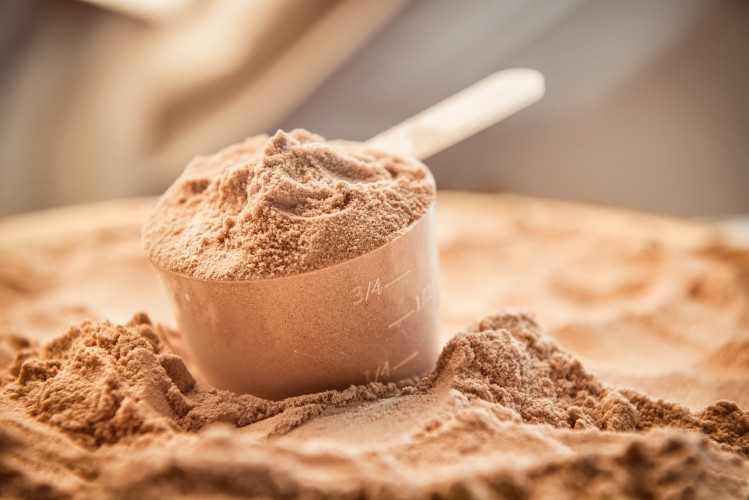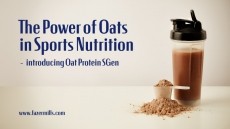Industry study concludes whey promotes muscular strength and endurance, independent of diet

Many studies have investigated the effect of whey protein supplement intake on the increase in muscle mass and strength associated with resistance exercise. However, the authors of the current study assert that several review papers and meta-analyses have reported conflicting results regarding the effects of protein supplementation on resistance exercise-induced improvements in muscle mass and strength.
This discrepancy may be due to a variety of factors, including differences in age, training experience, and the amount, type, and duration of protein supplementation in most previous studies. Another reason could be the amount of protein that participants consumed from their normal diet during the study period which can alter the effects of protein supplementation on muscle mass and function during resistance exercise.
Yet, according to the current report, few studies have investigated the effects of whey protein supplementation under dietary control. Therefore, more direct dietary interventions are needed to investigate the effect of whey protein supplementation on resistance exercise-induced improvements in muscle mass and function.
The current study, funded by the dairy nutrition firm Maeil Health Nutrition Ltd (Gyeonggi-do, Korea) and published in ‘Nutrients’, therefore investigated the effect of whey protein supplementation on changes in muscle mass and isokinetic muscle function following resistance exercise while controlling the participants’ normal diet by providing three meals a day during the entire study period.
“Our results showed that whey protein supplementation had a partial additional effect on upper- and lower-body muscular endurance. Thus, it is believed that the actual effect of protein supplementation was revealed more clearly through the direct control of the normal diet,” the authors note.
Next you can provide a bit of background knowledge on the ingredient and health issue being investigated, explaining why it’s a big health concern and why the ingredient is a potentially brilliant solution.
Why whey?
It is accepted that protein supplements with an optimal amino acid ratio can be useful for muscle protein synthesis and recovery for people who perform resistance exercises. Whey protein is considered the gold standard of protein supplements because it contains a higher essential amino acid content than other protein supplements. In addition, the amino acid component of whey protein has a pattern similar to that of human skeletal muscle amino acids; therefore, it is absorbed faster than other protein sources.
The study
In this randomized, double-blind, placebo-controlled trial 32 men were randomly assigned to a whey protein supplementation group taking whey protein isolate (PSG, n = 17) and a placebo group (CON, n = 15). There were no significant differences in baseline variables between the two groups.
Each participant consumed either a whey protein supplement or a placebo 3 times a day: morning, post-exercise, and evening.
The whey protein supplement and placebo contained the same calorie content of 99 kcal per pack. The whey protein supplement and placebo were formulated in powder form by Maeil Health Nutrition Co. Ltd.. One pack of whey protein powder supplement contained 20g of whey protein isolate, 8g of carbohydrate, and 6.4g of dietary fiber, and one pack of placebo contained 25 g of carbohydrate instead of protein.
All participants were provided three meals a day, which was equal to their calculated daily calorie intake. A packed meal company prepared each meal for each participant at a ratio of 10% protein, 30% fat, and 60% carbohydrates based on the individual’s calculated daily calorie intake. All meals were delivered directly to participants every morning. The nutritional content and calories of the meals provided to the participants were analysed weekly. Compliance with the diet was monitored through videos sent by the participants to record what they ate at each meal.
Supervised resistance exercise program was conducted 60 min per day, six days per week, for four weeks.
The authors say the resulting data revealed that post-intervention, there was a significant interaction between groups in terms of muscle mass increase (p = 0.033, η2 = 0.14), with a greater increase in the PSG. There were also significant interactions between the groups and increases in peak torque of the dominant knee flexors (p = 0.048, η2 = 0.12), dominant shoulder extensors, and non-dominant shoulder extensors (p = 0.028, η2 = 0.15; p = 0.015, η2 = 0.18), and the total work of the dominant knee and shoulder extensors (p = 0.012, η2 = 0.19; p = 0.013, η2 = 0.19), with greater increases in the PSG.
Interestingly, in this study, muscular strength did not increase even after resistance exercise in the CON. The researchers suggest this could be because muscle hypertrophy did not occur or because the exercise period in this study was shorter than that in the previous studies. In fact, it has been reported that muscular strength gains can be induced by resistance exercise after at least six weeks.











